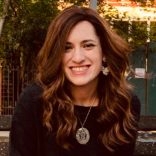Many Jews refrain from learning Torah on Christmas Eve and call it Nittel Nacht. Here’s my family tradition to spread light
Published December 23, 2020
(JTA) — In the modern era, holidays like Christmas and Easter are overwhelmingly joyous, exciting, commercialized — and not much of a threat to anyone.
Historically, though, European Jews felt fear and concern when these holidays came around. Many of our ancestors have recounted that these days were often marked by pogroms. Holiday festivities might come at a cost to Jewish lives and livelihoods. And with the constant concern that any day a leader would threaten mass terror if they didn’t convert, days that celebrated Christianity were frightening.
So in 17th-century Europe, at a time and place when Jewish morale was particularly low, a new tradition was instituted. It was called Nittel Nacht, or Night of the Birth, and commemorated with (among other things) a practice not to learn any Torah until late into the evening.
ADVERTISEMENT
The practice of not learning Torah is an interesting one and not the norm: There’s only one day on the Jewish calendar, the mourning holiday of Tisha b’Av, in which we are supposed to refrain from intentionally learning Torah.
Many rabbinic commentators explain the custom as an effort to spiritually reduce the strength of the world. Without Torah learning, they believe there is less vitality in the spiritual fabric of the universe. Some take this a step further to suggest that refraining from Torah study can limit the strength of those who sought to hurt Jewish lives, in a metaphysical sense.
Some communities, particularly Hasidic ones like mine, have a custom to play games such as chess to pass the hours. In others they would study other texts, noting that refraining from Torah study does not give one the right to waste their time on mindless matters. Chess seems like a pretty intense game, though, so I’ll give those communities at least a bit more credit.
ADVERTISEMENT
As my own relationship with Hasidic thought and customs continues to grow, I can appreciate the expansiveness of the universe, the patterns within it and the ability to tap into larger themes such as kindness, strength, wisdom and royalty. But I still sometimes find myself struggling to conceptualize the metaphysical. It is in those moments that I am grateful to be able to connect with spirituality in ways that extend beyond human cognition.
Actions and feelings are an important part of Jewish life and continuity. They exist within the space that is outside of what we can know. And they are particularly heightened by cyclic events and routines. Like when you intuitively know where you are and how to get there despite not being cognitively focused on driving. That’s the spirit of Nittel Nacht, to me.
One’s personal familiarity with Torah content, the Sages teach us, does not in and of itself define their religiosity — their actions and emotions are a significant part of their religious self. That’s why, while we refrain from Torah learning, my own family invests in other religious practices — namely chessed (acts of loving kindness) and tzedakah (giving charity). With the end-of-the-year charity drives, Nittel Nacht has become the night my husband and I generally sit down and decide where our donations go. We also tend to take some time to reach out to a few old friends we haven’t spoken with in a while.
Like so many other Jewish customs, Nittel Nacht is not necessarily about understanding what, how or why. The strength of the evening, or the tradition, stems from the fact that we keep doing it every year. That we recognize, “tonight will be a bit different from other nights,” even if it doesn’t make sense for it to be. We have to drive the same route again and again until it feels like second nature. Until we can do it without thinking. Until our bodies and hearts and souls can truly connect. And that’s why I come back to it year after year.
Well, that and the fact that otherwise I’d forget to make all of my tax-deductible donations before Jan. 1.

is an incoming assistant professor at the University of Texas- Arlington. Her research and teaching efforts focus on urban policy, public administration, and social sustainability. She is also a freelance writer and has written for local and national publications. She lives in Dallas with her husband and two children.
The views and opinions expressed in this article are those of the author and do not necessarily reflect the views of JTA or its parent company, 70 Faces Media.















